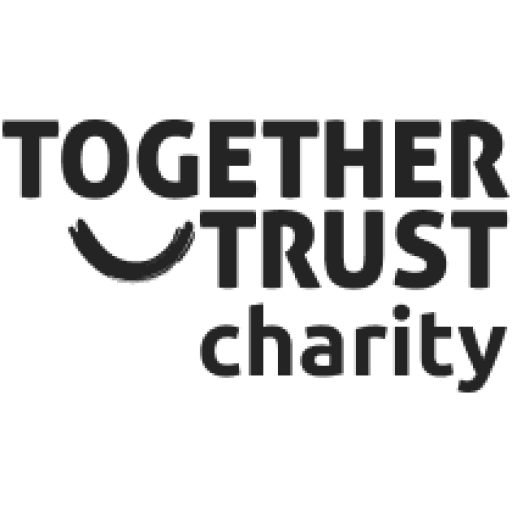Therapy and support for schools and professionals
We offer tailored therapy support in schools to help children with autism and complex needs shine at school.
Our friendly and experienced therapists and learning support staff slot right in with existing school teams and support staff.

What we offer
Speech and language therapy
Our Speech and Language Therapists support children and young people with a wide range of speech, language and communication needs.
Our sessions are based on the individual requirements of each young person and the settings in which they live and learn. We support people who have:
- Autism Spectrum Conditions, including Asperger’s syndrome
- Attention and listening difficulties
- Receptive language difficulties (understanding what other people say)
- Expressive language difficulties (using words, forming sentences)
- Communicating and interacting with others in socail settings
- Speech sound/pronunciation difficulties, including dyspraxia
- Stammering
- Selective Mutism
Whether you have a pre-school child who is not yet talking or a teenager struggling with social skills and understanding, we can assess their language skills and implement therapy programmes or suggest strategies for use at home and school.
“Jake was really struggling in school. I don’t think they had come across a child like him before!
Your advice really made a difference. It helped staff to understand his behaviour and how to communicate with him. Thank you.”
– Parent
Advisory teachers
Our advisory teachers are experienced in working in mainstream and SEND school settings and have extensive experience of supporting young people and the staff who teach and support them.
Within our team, we have teachers who specialise in working with young people who have autism and social communication difficulties, display behaviour that challenges, or have Social Emotional and Mental Health (SEMH) conditions.
We predominantly work in mainstream and special school settings at both primary and secondary level. We can also provide links between home and school where additional learning support is required in the home environment.
Our work includes, but is not limited to, the following:
- ACES (Adverse Childhood Experiences) Recovery Toolkit Programme – uses a combination of creative activities and group working to develop resilience and skills to cope with adversity
- Collaborate with schools to support students with autism, social communication needs, SEMH needs and behaviours of concern
- Conduct observations, audits of the classroom/school environment and provide recommendations, resources and reports
- Deliver intervention sessions to individuals or groups
- Provide training for staff, consultations, resources and model interventions in order to develop staff skills further
- Develop peer awareness through assemblies, lessons and resource packs
- For businesses and organisations, we provide training on various topics linked to autism
- Advice and support on autism-friendly workplaces and recruitment procedures
- Drawing and Talking Therapy – a non-intrusive person-centred therapy focussing on prevention, early intervention and recovery for young people who have suffered trauma or has underlying emotional difficulties
“Sam looks forward to his speech therapy session…it’s his favourite part of the week.”
– Parent
Positive Behaviour Support
Our Positive Behaviour Support (PBS) Practitioners have backgrounds in teaching and working with young people in mainstream and special educational need settings.
Our Practitioners work closely with staff in a range of settings including schools and social care residential services. We can work with your setting to implement a tiered service-wide positive behaviour support model, focusing on building staff skills through training, coaching and modelling.
Where support is required for an individual, we can provide a full behavioural functional assessment and an individual intervention plan.
Occupational therapy
We support practical skill development and understanding of sensory differences to maximise occupational performance. We also aim to provide training and support for those who care for people at home, school and work.
Our main areas of focus include:
- Personal care and activities of daily living
- Handwriting and other fine motor skills
- Gross motor and strength development
- Engagement with preferred activities
- Sensory processing differences
- We have an established bank of training packages and can also deliver bespoke training and coaching if required
All our Occupational Therapists are members of the Royal College of Occupational Therapists (RCOT), are registered with the Health Professions Council and undertake postgraduate training and learning.
Psychology service
Our educational psychologists work across school consortiums.
Our assistant psychologists support the implementation of educational psychology advice and can help staff through training, coaching and programmes of intervention.
We provide psychological reports to provide a record of assessments and agreements, which can evidence a child’s needs, and may be used to support referrals to other services and applications for Education Health Care Plan assessments
We provide school-wide training, including but not limited to:
- Teaching Emotional Regulation through Emotion Coaching
- Neurodiversity-Friendly Practice
- Precision Teaching
- Effective Differentiation and Meta-Cognitive Practice
- Circle of Friends
“Since the Together Trust’s involvement, we feel more confident in how we can help. We have a better understanding of what’s going on and why, and we know what to do when the child is in crisis.”
– Special educational needs coordinator
We offer drop-in sessions and workshops for teaching staff and parents. Our assistant psychologists offer six-week intervention programmes for children who would benefit from one-to-one or small group interventions.
Schools can purchase educational psychology support as part of a multi-disciplinary package including input from Speech and Language Therapy, Occupational Therapy and Specialist Advisory Support Teachers for literacy and behaviour.
Using this approach, we can triage cases with SENCOs (special educational needs coordinators) and work to support children and young people in a holistic way.
